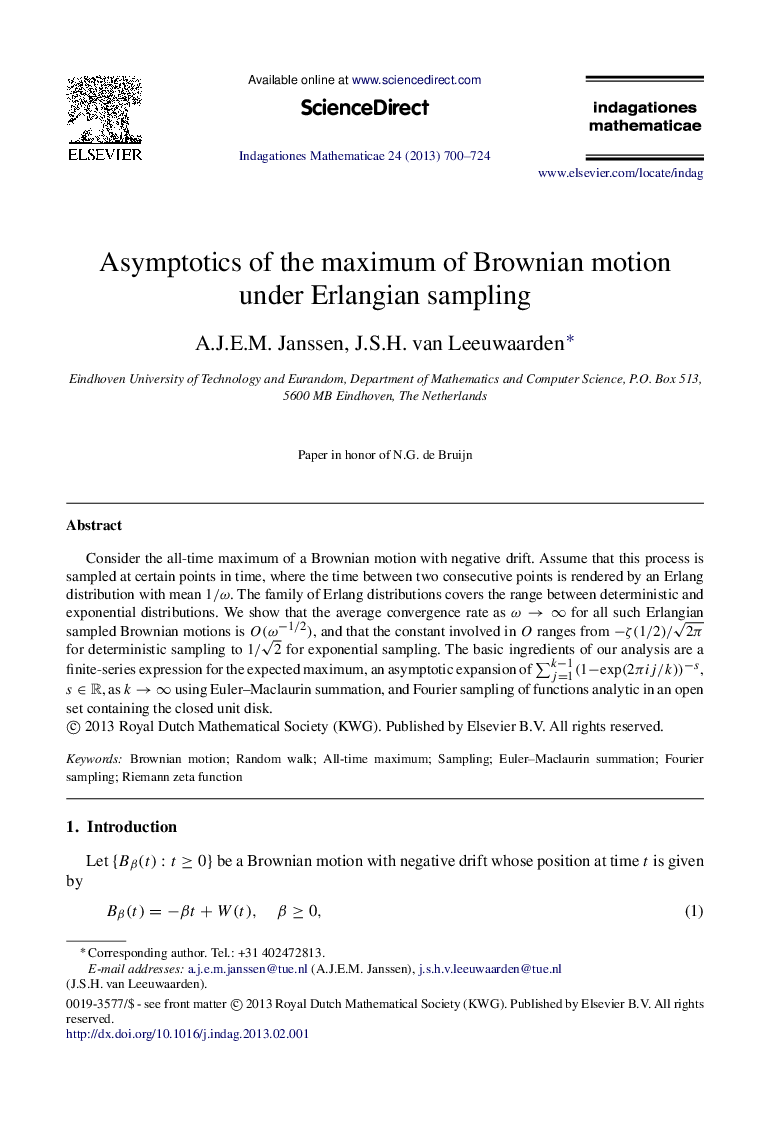| Article ID | Journal | Published Year | Pages | File Type |
|---|---|---|---|---|
| 4673056 | Indagationes Mathematicae | 2013 | 25 Pages |
Consider the all-time maximum of a Brownian motion with negative drift. Assume that this process is sampled at certain points in time, where the time between two consecutive points is rendered by an Erlang distribution with mean 1/ω1/ω. The family of Erlang distributions covers the range between deterministic and exponential distributions. We show that the average convergence rate as ω→∞ω→∞ for all such Erlangian sampled Brownian motions is O(ω−1/2)O(ω−1/2), and that the constant involved in OO ranges from −ζ(1/2)/2π for deterministic sampling to 1/2 for exponential sampling. The basic ingredients of our analysis are a finite-series expression for the expected maximum, an asymptotic expansion of ∑j=1k−1(1−exp(2πij/k))−s, s∈Rs∈R, as k→∞k→∞ using Euler–Maclaurin summation, and Fourier sampling of functions analytic in an open set containing the closed unit disk.
